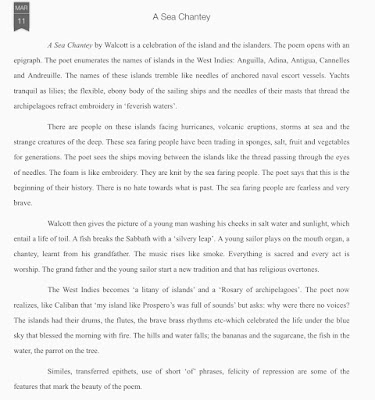Followers
Gabriel Okara’s “Were I to Choose”.pdf
Gabriel Okara, a Nigerian poet, is immersed in folk-tradition and ballad. One can discern influences of native tradition and English romantic tradition and he often tries to create a synthesis between the two. He often utilizes ‘transliteration’ and thereby renders his poems regional, yet universal. His poems are often marked for their lyrical musicality.
Gabriel Okara’s “Were I to Choose” is reminiscent of Yeats’ “Adam’s Curse.” Adam toiling in the soil can be compared to the Negros working in the soil. They broke the stone themselves which was their very foundation. The red streams are symbolic of the multilingual diversity that reaches the womb Africa.
Cain metaphorically represents the next generation. ‘I’ in Okara’s poems generally refers to the tribe. The poet implies that he is currently imprisoned in the present generation and its identity crisis. The earlier generation’s gaze would not go beyond; but his does and to him, the world is looked at from the brink. Written in 1950s, the period of Nigerian Independence, the poet sees his ancestors-their slavery, their groping lips and the breasts muted by heart-rending suffering. His vision goes outside and backwards. The memory is like a thread going through his ears.
Cain was a wanderer, who if caught by anybody, would be definitely slain.…
A sea Chantey summary by, Derek Walcott
A Sea Chantey
A Sea Chantey by Walcott is a celebration of the island and the islanders. The poem opens with an epigraph. The poet enumerates the names of islands in the West Indies: Anguilla, Adina, Antigua, Cannelles and Andreuille. The names of these islands tremble like needles of anchored naval escort vessels. Yachts tranquil as lilies; the flexible, ebony body of the sailing ships and the needles of their masts that thread the archipelagoes refract embroidery in ‘feverish waters’.
There are people on these islands facing hurricanes, volcanic eruptions, storms at sea and the strange creatures of the deep. These sea faring people have been trading in sponges, salt, fruit and vegetables for generations. The poet sees the ships moving between the islands like the thread passing through the eyes of needles. The foam is like embroidery. They are knit by the sea faring people. The poet says that this is the beginning of their history. There is no hate towards what is past. The sea faring people are fearless and very brave.
Walcott then gives the picture of a young man washing his cheeks in salt water and sunlight, which entail a life of toil. A fish breaks the Sabbath with a ‘silvery leap’. A young sailor plays on the mouth organ, a chantey, learnt from his grandfather. The music rises like smoke. Everything is sacred and every act is worship. The grand father and the young sailor start a new tradition and that has religious overtones.
The West Indies becomes ‘a litany of islands’ and a ‘Rosary of archipelagoes’. The poet now realizes, like Caliban that ‘my island like Prospero’s was full of sounds’ but asks: why were there no voices? The islands had their drums, the flutes, the brave brass rhythms etc-which celebrated the life under the blue sky that blessed the morning with fire. The hills and water falls; the bananas and the sugarcane, the fish in the water, the parrot on the tree.
Similes, transferred epithets, use of short ‘of’ phrases, felicity of repression are some of the features that mark the beauty of the poem.
Subscribe to:
Comments (Atom)





